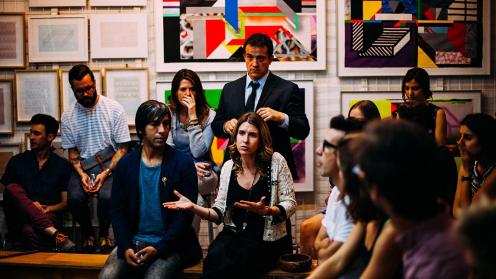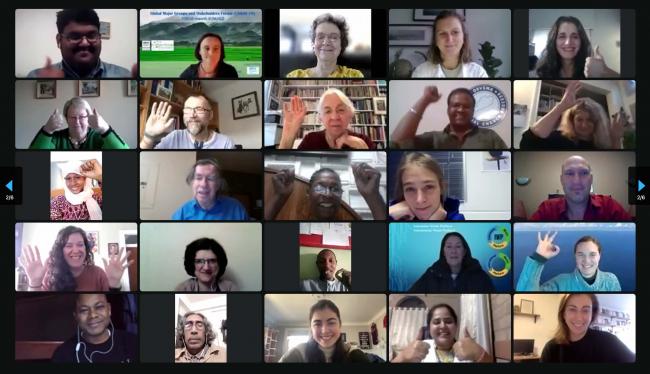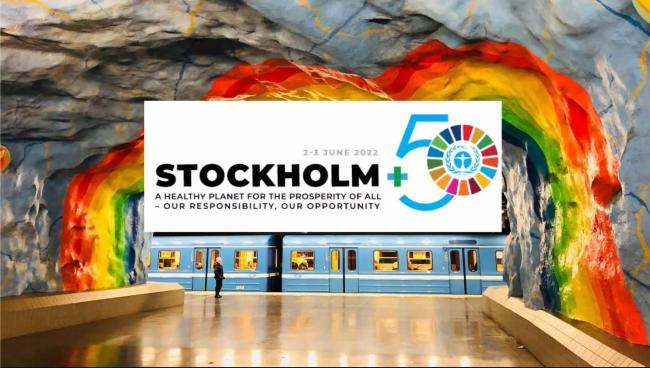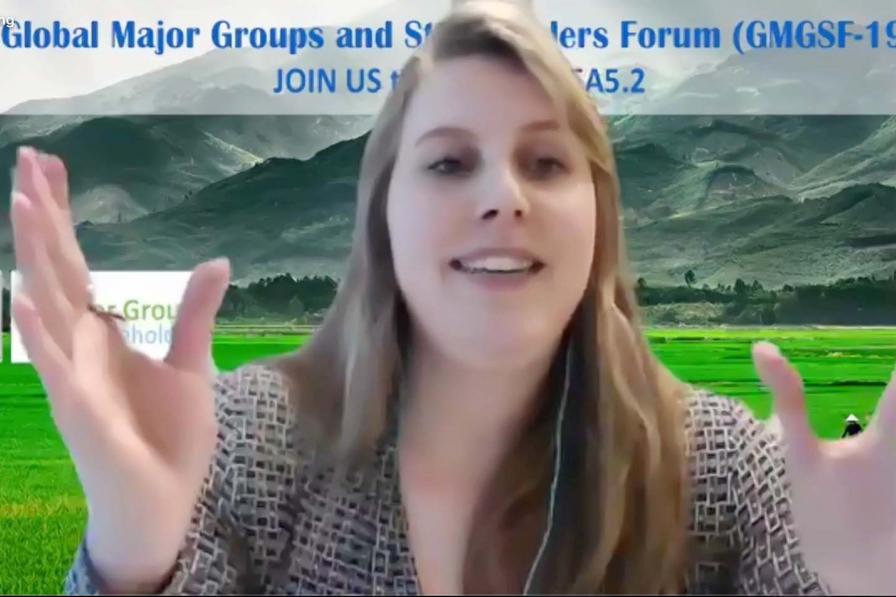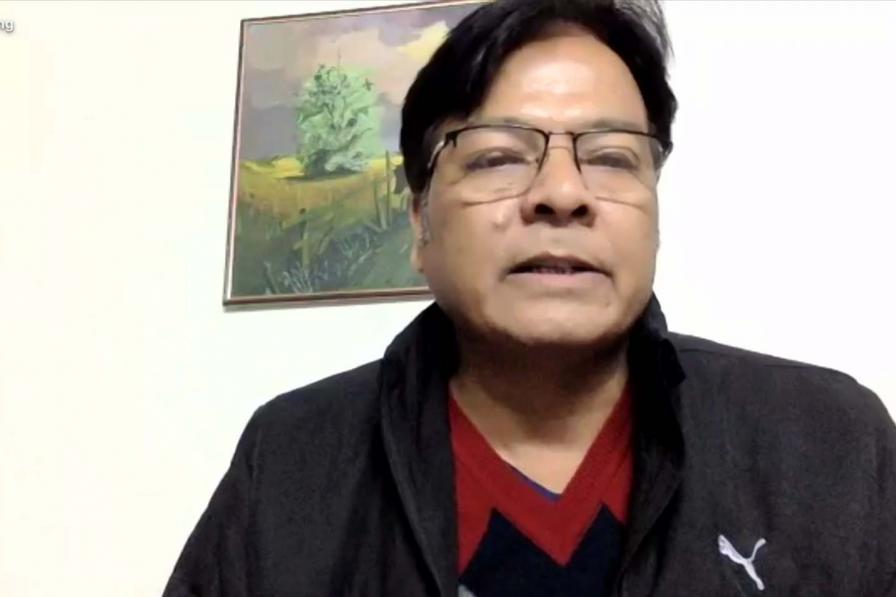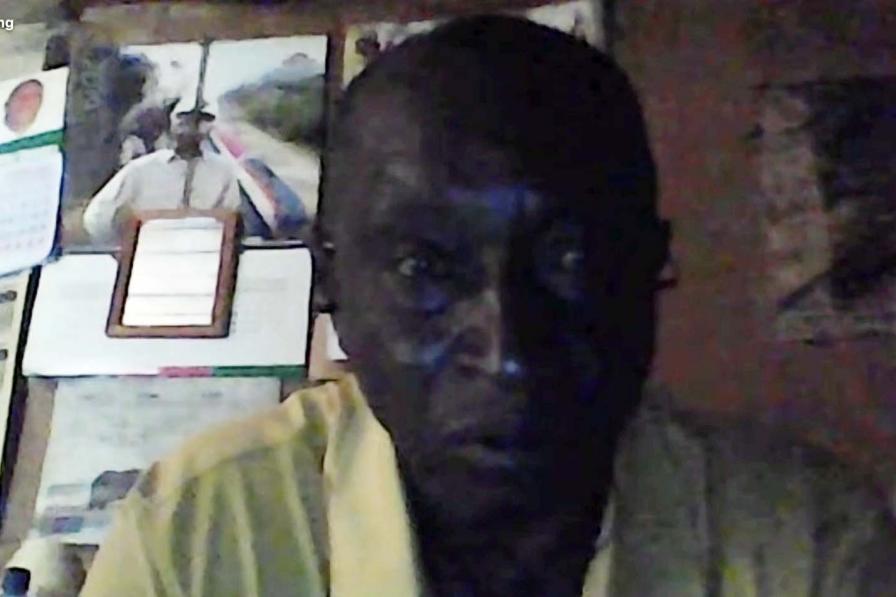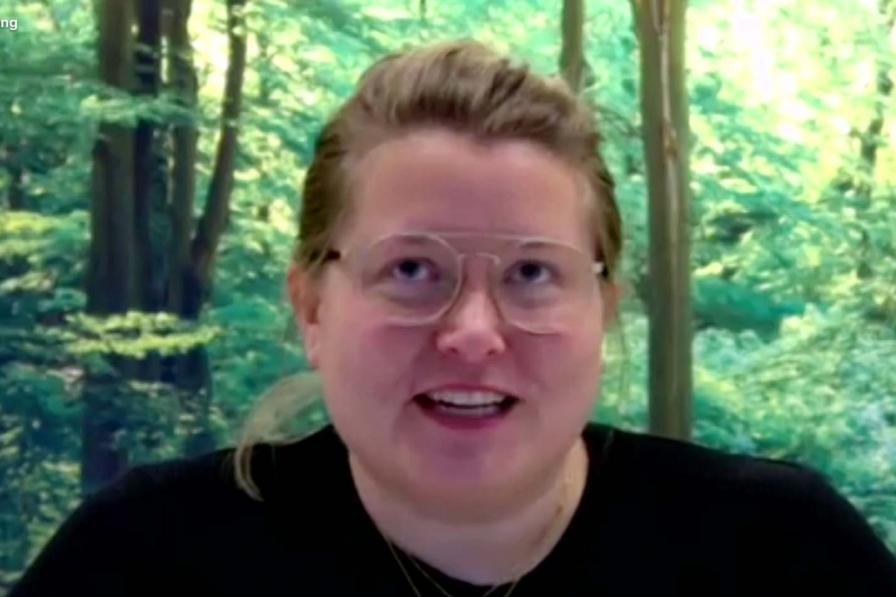The fourth and final day of GMGSF-19 convened in two plenary sessions to consider inputs from Major Groups and Stakeholders (MGS) on upcoming 50-year commemorations of the 1972 Stockholm Conference on the Human Environment (Stockholm+50) and the subsequent establishment of the UN Environment Programme (UNEP@50). The plenary session also reviewed the Joint MGS Statement on “The UNEP We Want,” and the Global Joint Statement, both of which will be forwarded to UNEA-5.2 after a final round of revisions by a representative task force.
UNEP@50: Stephen Stec, UNEP@50 Task Force, guided participants on a paragraph-by-paragraph review of “The UNEP We Want” document. He explained that the document had been developed through an open and transparent process, with text derived from different sources, but that streamlining was required to remove repetition and inconsistencies. One participant pointed out that pollution was not sufficiently reflected. Several participants called for including Highly Hazardous Pesticides in the text. Paragraphs relating to Indigenous Peoples elicited substantial debate. The proponents of the revisions were invited to continue this discussion in parallel, revise the text, and present it to the major groups facilitating committee.
After noting other inputs on the various sections, the GMGSF adopted the document.
Stockholm+50: Ingrid Rostad, Co-Chair, Major Groups Facilitation Committee, provided an overview of preparations for the commemorations in June 2022. Noting there will be no formal negotiated outcome at UNEA-5.2, she highlighted various opportunities for participation in the lead up to the event to strengthen commitments and follow up actions to be agreed in Stockholm. Outlining the three proposed Leadership Dialogues around which the discussions will be organized, she stressed that achieving impact hinges on implementation on the ground, backed up by financial support, capacity building, and robust enforcement and monitoring of environmental laws at higher levels. Yoko Lu and Jin Tanaka, representing the Stockholm+50 youth task force, highlighted participation avenues to ensure inclusive, as well as meaningful, engagement.
Joint Global Statement: During the closing plenary, Patrizia Heiddegger, European Regional Facilitator, Major Groups Facilitation Committee, led a review of the latest draft of the GMGSF-19 outcome document, which is divided into seven sections: a preamble; looking back at 50 years of UNEP; UNEP/UNEA looking forward; strengthening and upgrading UNEP; the “UNEA We Want”; and UNEP/UNEA collaborative participation of MGS. The Annex consists of selected UNEP achievements most recognized and appreciated by global civil society.
Participants were invited to submit additional input until Tuesday, 15 February 2022.
Most sections were adopted without further substantive discussions with the exception of text on nature-based solutions (NbS), with most speakers continuing to express strong reservations regarding, amongst other things, greenwashing and the inadequacy of current safeguards. Summarizing the discussions, Ingrid Rostad commented that NbS “are neither nature nor solutions.” It was agreed that the co-facilitators of the cluster would draft a text reflecting the diversity of views regarding content, while “neither endorsing nor rejecting” the draft resolution. Another issue raised in connection with the Global Statement as a whole was whether to mention the role of faith-based organizations, with one contributor notingt a rights-based approach requires that all voices are heard.
Closing the session, Ingrid Rostad expressed appreciation for excellent facilitation of a lengthy and complex drafts, noting it took “more than a village” to deliver these final texts. After a virtual group photo, she declared GMGSF-19 closed at 19:29 EAT.
The IISD's summary report of GMGSF is available in HTML and PDF format.
To receive free coverage of global environmental events delivered to your inbox, subscribe to the ENB Update newsletter.
